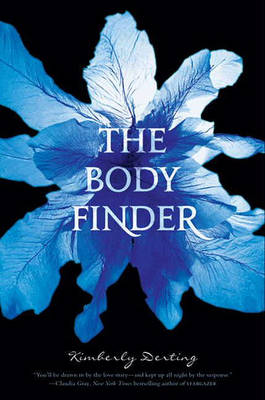"She needed to find the killer, to stop him before he could hurt anyone else." (Violet Ambrose)
If I had read this book 4 years ago, I would have loved it, but unfortunately the present day me finds many aspects of The Body Finder tropey and problematic.
The Body Finder has a cool premise. Violet, the main character, has a sixth sense and can sense the "echoes" of murdered bodies and the imprint of the echo on the murderer via her senses.
The mystery aspect of The Body Finder is sorely lacking. I always say that mystery is "my first love" because it is the first genre that I became obsessed with. I loved anything to do with mystery and I wanted to become a detective or a forensic scientist. In The Body Finder the murderer has their own POV. This POV is supposed to show their motives and add suspense, but the killer's POV did neither of those things. The murderer's POV and motives are extremely stereotypical and because of this I didn't feel any suspense or fear for the characters. The mystery of who the killer was is also extremely predictable and the 'trick' that Derting tried to add at the end didn't work.
The Body Finder has a greater amount of romance than it does mystery and suspense. Violet starts to develop feelings for Jay, who has been her best friend since childhood. Violet's manner of dealing with her feelings towards Jay and her fear of ruining their platonic relationship is extremely realistic. However, when they do become a couple, their relationship defines who they are as individuals. Jay is also patronizing and controlling and these negative characteristics about him are romanticized.
I did like that Violet's parents play a huge role in Violet's life. I also enjoy that they know about Violet's abilities and become her support system.
The other secondary characters are extremely stereotypical and the interactions involving them and the main characters are tropey. Here are examples:
💀 Lissie Adams starts fawning over Jay and because of that Violet and her friends slut-shame her and insult her because apparently she's a ditsy cheerleader although they have never had one conversation with her. When she does come into contact with Violet she acts like a stereotypical mean girl. On an entirely unrelated note: What makes it okay for Jay to use Lissie to make Violet jealous and then dump her after he gets Violet? Such jerk tendencies!
💀 Claire Amadeus is part of Violet's friendship circle and she's one of those people who are too nice because they don't know how to be mean, doesn't get jokes, only cares about appearances and her brain is filled with air. Claire is also homophobic and what's problematic is that her homophobic tendencies are mentioned and brushed aside instead of being dealt with.
💀 Grady, Violet's friend, starts to gain romantic interest in her and in order to get Grady out of the picture when it's convenient to the plot and also to make Jay seem like a hero, sexual assault is used as a plot device. Sexual assault is an extremely serious issue and it needs to appear in discussions and literature, but sexual assault should not just be used to further plot. The aftermath of this sexual assault is also brushed away because the character was intoxicated at the time. What message is this book spreading about sexual assault?
💀 Why is Violet always saved from danger by guys?
While the The Body Finder has an interesting and unique concept, the mystery is lackluster. The romance starts off great and then deteriorates, the secondary characters are stereotypical and there are many problematic issues that aren't dealt with.
